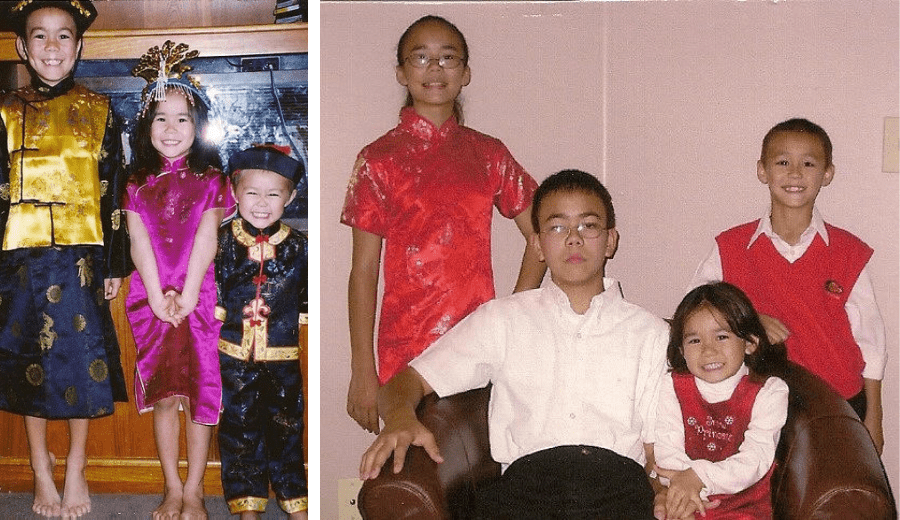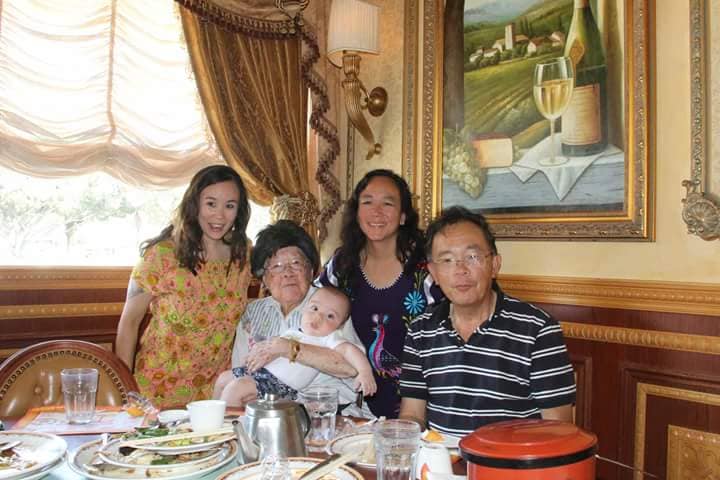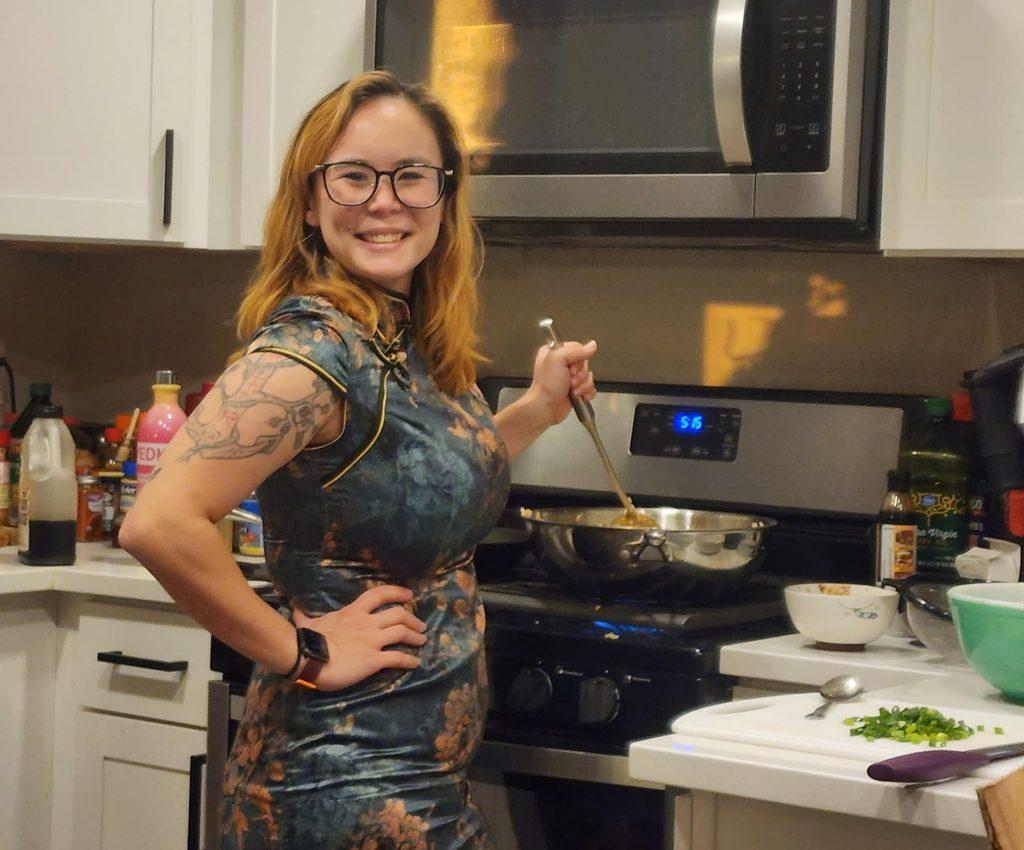Hello May! And welcome Asian American Pacific Islander (AAPI) Heritage Month!
In this month we take the time to celebrate Asian American History. This month is important to me as an Asian American. I am half Chinese and half Caucasian. My family has always taken pride in my Chinese side. We shared the Lunar New Year celebrations with my elementary school classes growing up. We love getting together as a family to dress up and celebrate our Asian American culture.
 It’s always fun to celebrate Asian American History, but that history wasn’t always pretty. Here are some shocking facts that I didn’t even know growing up:
It’s always fun to celebrate Asian American History, but that history wasn’t always pretty. Here are some shocking facts that I didn’t even know growing up:
In 1882, the Chinese Exclusion Act was enacted, imposing a 10-year ban on Chinese immigrant laborers coming to America. The act, driven by prejudice, also targeted other Asian groups such as Japanese, Filipinos, and Koreans seeking immigration, subjecting them to harsh holding conditions instead of entry. This was fueled by the perception that Chinese immigrants were monopolizing jobs.
The first recorded presence of Filipinos in the U.S. dates back to October 1587 when Novohispanic ships carrying slave workers and prisoners landed near Morro Bay, California. Many served as ranch hands in the Western U.S.
Filipino sailors residing in Louisiana, known as “Manilamen,” fought in the War of 1812.
The Asiatic Exclusion League, established in the early 20th century in the United States and Canada, aimed to restrict immigration from Asian countries, reflecting broader anti-Asian sentiments of the time.
The 1992 Los Angeles Race Riots erupted on April 29th, following the acquittal of four white police officers in the beating of Rodney King. The violence, which spread to Koreatown, resulted in over 50 deaths, more than 2,300 injuries, thousands of arrests, and extensive property damage totaling approximately $1 billion. It marked one of the most devastating civil disturbances in American history.
Here are some interesting facts about AAPI History:
AAPI Heritage Month was first celebrated in 1979 when President Jimmy Carter signed a proclamation to recognize the contributions of Asian Americans and Pacific Islanders to American culture and history.
In the late 1800s, Chinese laborers played a pivotal role in constructing the Transcontinental Railroad, linking the West and East coasts of the United States.
They also constructed a network of underground tunnels in eastern Oregon. Known as Underground Pendleton, this hidden enclave was unearthed by city workers in the 1980s. It harbored a plethora of secret and controversial businesses, including saloons, apothecaries, bordellos, a butcher shop, and opium dens. Amidst rampant discrimination from the white population, the Chinese ingeniously created this underground haven for safety and freedom, which today stands as a captivating museum.
My great-grandfather holds the distinction of being the first Chinese man to obtain a driver’s license in the United States!
Lunar New Year is a cherished tradition for many, symbolizing a fresh start to the year. Among its customs is the practice of settling debts before the new year commences, signifying a clean slate and auspicious beginnings.
There are over 23 million AAPIs in the United States, representing over 50 different ethnic groups and speaking over 100 different languages.
» » » » » » » » » » » » » » » » RELATED READ: Lumpia Recipe for AAPI Month « « « « « « « « « « « « «
Notable AAPI People
- Jackie Chan is a Hong Kong actor, director, writer, producer, martial artist, and stuntman. He is known for his slapstick acrobatic fighting style, comic timing, and innovative stunts which he typically performs himself.
- Priyanka Chopra Jonas is an Indian actress and producer. The winner of the Miss World 2000 pageant, Chopra is one of India’s highest-paid actresses and has received numerous accolades, including two National Film Awards and five Filmfare Awards.
- Kamala Harris, an American politician and attorney, currently serves as the 49th Vice President of the United States. She holds several historic titles, including the first female vice president, the highest-ranking female official in U.S. history, and the first African-American and Asian-American vice president.
- Peter Gene Hernandez, professionally known as Bruno Mars, is an American singer, songwriter, and record producer. Born on October 8, 1985, he is of Filipino and Spanish descent. His mother immigrated from the Philippines to Hawaii, benefiting from the historical connection between the Philippines and the United States as a former American colony. Mars’ parents met while performing in a show, where his mother was a Hula dancer and his father played percussion. At the age of two, he earned the nickname “Bruno” from his father due to his resemblance to professional wrestler Bruno Sammartino.
Notable (Kid-Friendly) Movies featuring AAPI People
- Moana :: The plot is original but takes inspiration from Polynesian myths. It’s a fun way to teach children about different cultures.
- Turning Red :: This movie speaks a lot about respecting ancestors and coming of age. It’s based on a Chinese/Canadian young girl’s journey.
- Mulan :: I grew up with this movie and loved it. I was called “Ping” growing up because I was a tough little lady.
AAPI Heritage Month is so important to me and so many others whose families lived through these historical changes and triumphs.

I remember my great-grandfather not knowing if he was supposed to use the “white” or “colored” water fountains or restrooms. Growing up, I was considered to have a yellowish tint to my skin, so I would guess many people would judge him differently at that time. I can’t imagine what he went through. He said people would see him differently depending on the establishment.
I love history and knowing the stories of where we all come from. I’m proud to say that we have learned and grown from the experiences of our ancestors.
The opinions expressed in this post are those of the author. They do not necessarily reflect the official policy or position of ABQ Mom, its executive team, other contributors to the site, its sponsors or partners, or any organizations the aforementioned might be affiliated with.













